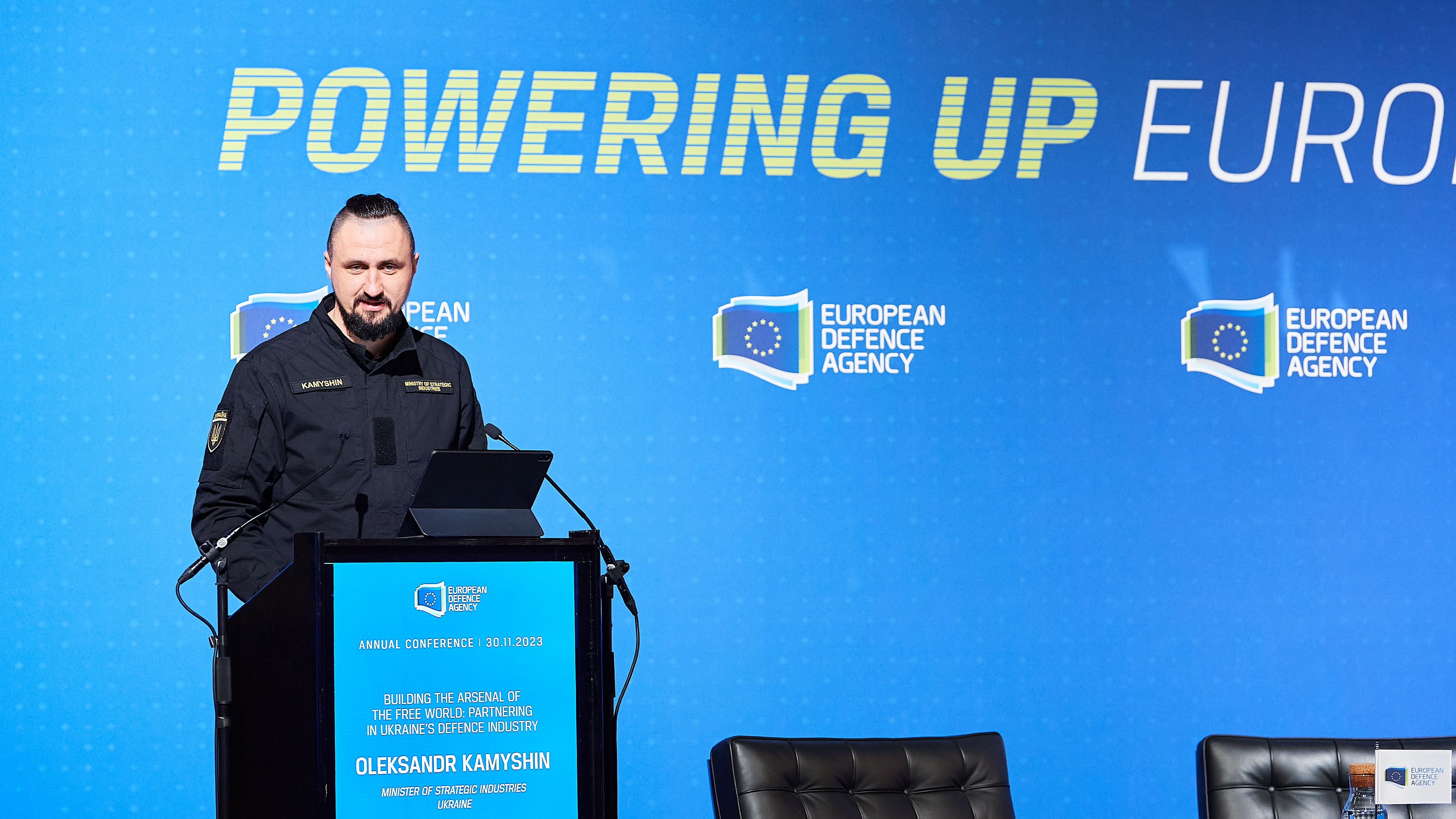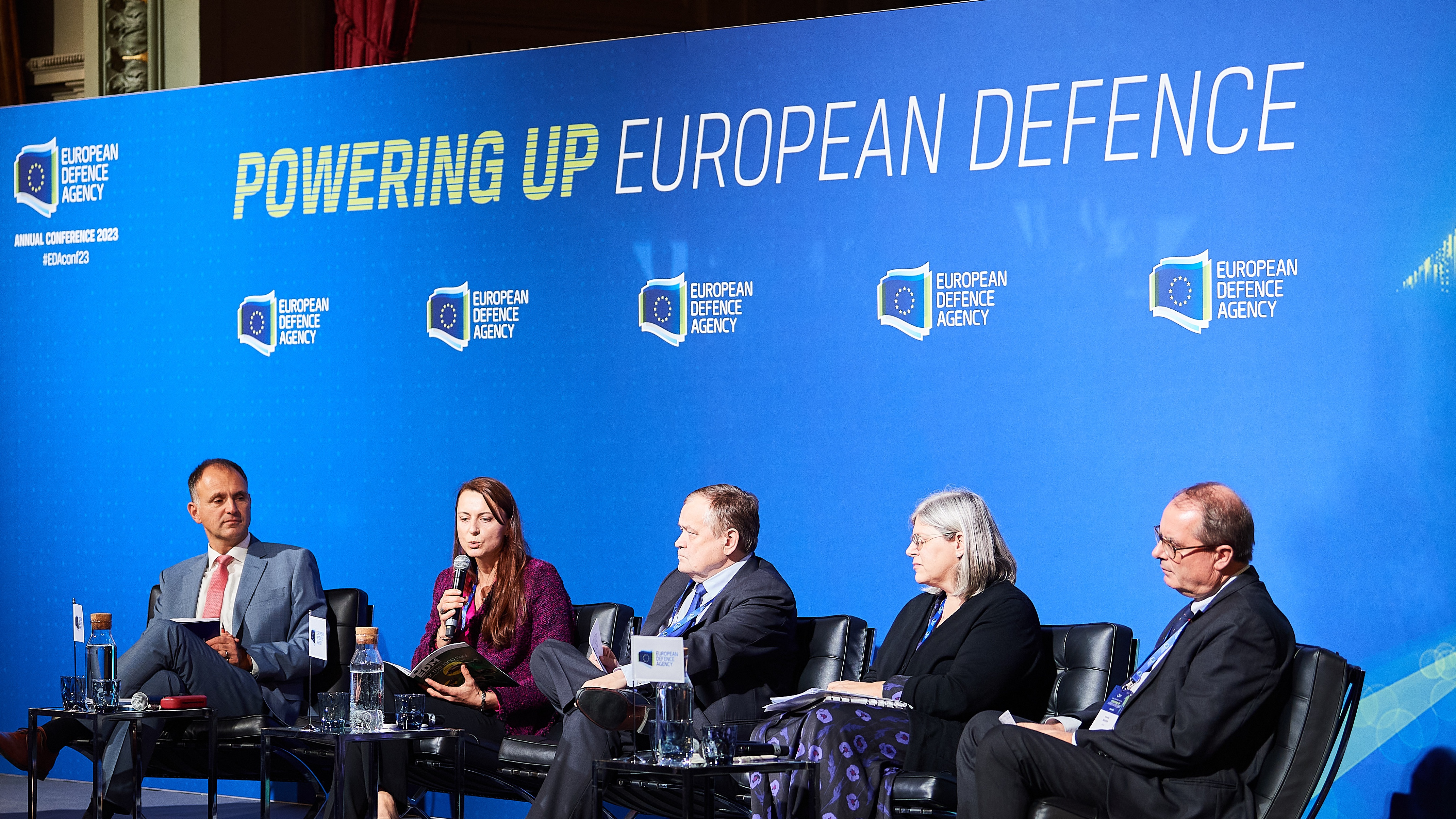Europe should consider Ukraine as the "arsenal of the free world" and learn lessons from the conflict with Russia, Oleksandr Kamyshin, Ukrainian Minister of Strategic Industries, told the European Defence Agency's annual conference.
"We are paying a terrible price but (the war) allows us to guarantee the quality of our defence products," Kamyshin told the 300 delegates gathered in Brussels, who included Ministers of Defence, EU lawmakers, members of Europe’s armed forces, defence industry representatives and experts.

"We offer you a chance to get ready, we ask you not to miss it. We didn’t choose this way, we have been a peaceful country But this world pushes us to build an arsenal, the arsenal of the free world, let’s build it together," Kamyshin said.
He added that the 'innovation cycle' in Ukraine during wartime was as short as two weeks: from the moment the military sees something is not working to its reestablishment as a reliable asset.
Speaking on a panel dedicated to supporting the European Defence Technological Industrial Base (EDTIB), Timo Pesonen, Director General, DG DEFIS, European Commission, said that the Commission, EDA and NATO were working together to develop industry.
Wendy Gilmour, Assistant Secretary General for Defence Investment at NATO, recalled that collective defence, planning and setting standards have allowed the transatlantic alliance to deliver interoperable capabilities. She said EDA, OCCAR and NSPA worked together to deliver on European goals, citing the Multinational Multi Role Tanker Transport Fleet (MMF).
"A more effective European defence industrial base will make NATO stronger," Gilmour said, urging European cooperation with Turkey, Britain and the United States. Gilmour said that Ukraine was firing 15,000 rounds a day of large calibre ammunition, showing the challenge for Western production facilities to help meet the demand.
Radka Konderlova, Director-General for Industrial Cooperation, Ministry of Defence, Czechia, said there must be better access to financing for defence companies. She said Czechia was trying to address the issue with banks. "The devil is sometimes in the details," she added.

'European preference'
Antoine Bouvier, Head of Strategy, Mergers and Acquisitions at Airbus, said volume and performance were both crucial to a successful defence industry in Europe. "You can get volumes through inventories ... but this is not sustainable. It is sustainable to invest. It means you have to take a political decision from governments and a business decision from industry."
Bouvier called for a "European preference" when it came to Member States buying military assets and equipment, saying it would give more predictability to industry. He also said it was important to attract young people to work in European defence companies. "Funding, predictability yes. But if we are missing human resources, we will be prevented from doing our job," he said.